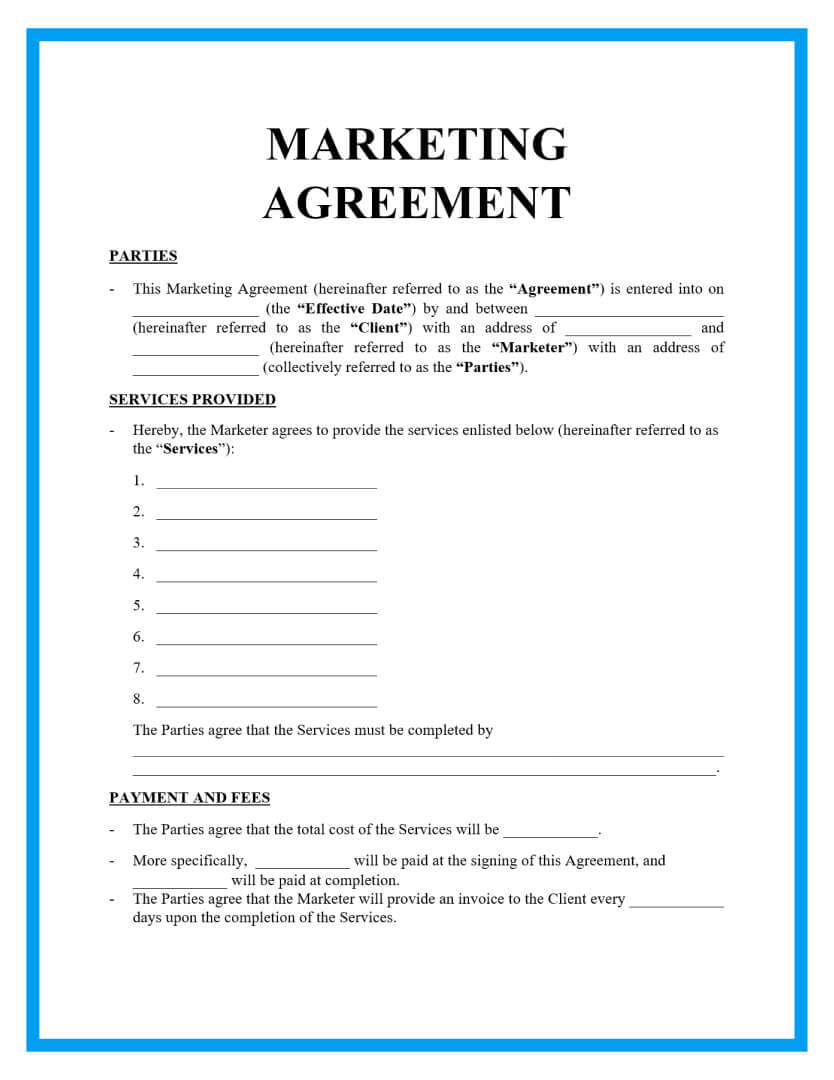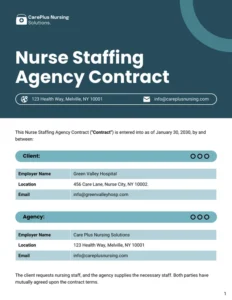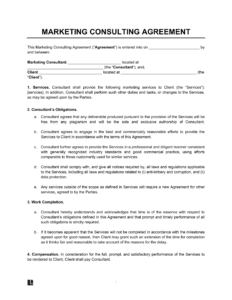Navigating the world of digital marketing can be exciting, but it also comes with its share of complexities, especially when it comes to formalizing partnerships. Whether you are an agency offering services or a business seeking expert help, having a clear understanding of the agreement is paramount. A well-crafted contract isn’t just a formality; it is the backbone of a successful, transparent, and long-lasting collaboration, setting expectations and safeguarding interests for both parties involved.
Think of a contract as your foundational blueprint. It clarifies roles, responsibilities, and deliverables, ensuring everyone is on the same page from day one. Without one, you might encounter misunderstandings, scope creep, or even legal disputes down the line, which can derail even the most promising projects. Let’s explore what makes an effective agreement and why investing time in its creation is one of the smartest decisions you can make.

Essential Elements of a Robust Digital Marketing Agreement
When you’re embarking on a digital marketing partnership, a solid contract is your best friend. It outlines everything from the services to be provided to the nitty-gritty of payment schedules and intellectual property. Crafting a comprehensive digital marketing agency contract template means covering all your bases, ensuring no stone is left unturned. This document acts as a safeguard, protecting both the agency’s efforts and the client’s investment by clearly defining the scope and limitations of the engagement.
A critical section is the detailed scope of work. This isn’t just a brief mention; it needs to be an exhaustive list of all services the agency will provide, such as SEO, content creation, social media management, PPC campaigns, or website development. Each service should have specific deliverables and metrics outlined. For instance, if SEO is included, it might specify keyword research, on-page optimization, and monthly ranking reports. This level of detail prevents ambiguity and manages expectations from the outset.
Payment terms are another non-negotiable component. This section should clearly state the total cost of the project or the ongoing retainer fee, the payment schedule (e.g., upfront deposit, monthly installments, milestone-based payments), and accepted payment methods. Don’t forget to include clauses for late payments, any applicable taxes, and the process for invoicing. Transparency here helps avoid financial disputes and ensures a smooth operational flow.
The term and termination clauses are equally vital. How long will the contract be in effect? What are the conditions under which either party can terminate the agreement early? These often include notice periods, reasons for termination (such as breach of contract or non-payment), and what happens to ongoing projects or outstanding payments upon termination. Having these provisions clearly laid out offers a safety net for both sides.
Furthermore, intellectual property rights and confidentiality clauses are paramount in the digital age. Who owns the content created? What happens to website designs, ad copy, or strategic documents after the contract ends? A clear IP clause dictates ownership and usage rights. Similarly, a confidentiality agreement protects sensitive business information shared during the engagement, ensuring that proprietary strategies, data, and client information remain secure.
Key Sections to Include:
- Detailed Scope of Work and Deliverables
- Payment Schedule and Terms
- Term of Agreement and Termination Clauses
- Confidentiality and Non-Disclosure
- Intellectual Property Ownership
- Dispute Resolution Mechanism
- Limitation of Liability
Each of these sections plays a crucial role in building a resilient and fair agreement, laying a foundation for a productive partnership. By meticulously defining these aspects, you create a document that not only formalizes the relationship but also preempts potential issues, allowing both parties to focus on achieving marketing objectives.
Why a Thorough Contract is Indispensable for Your Partnership
In the fast-paced world of digital marketing, relying on verbal agreements or vague emails can lead to significant problems down the road. A comprehensive contract, tailored to the unique needs of your engagement, serves as an invaluable tool for clarity, protection, and fostering trust. It’s more than just legal jargon; it’s a commitment from both sides, outlining the expectations and responsibilities, thus minimizing miscommunication and fostering a more productive environment.
For agencies, a well-defined contract protects your time, resources, and intellectual assets. It prevents scope creep, where clients continuously ask for additional work beyond the initial agreement without adjusting compensation. By clearly delineating the services and deliverables, you can efficiently manage your team’s workload and ensure fair compensation for every task performed. It also provides a legal recourse should a client fail to uphold their end of the bargain, such as delayed payments.
Clients, on the other hand, benefit immensely from the transparency and accountability a robust agreement provides. It ensures that the agency is committed to delivering the promised services within specified timelines and to agreed standards. Knowing exactly what to expect, how performance will be measured, and what steps to take if issues arise provides peace of mind and allows businesses to focus on their core operations, confident that their marketing efforts are in capable hands.
Ultimately, a strong agreement strengthens the foundation of any business relationship. It establishes a professional framework built on mutual understanding and respect, which is crucial for achieving long-term marketing success. This document serves as a reference point for any questions or disagreements that may arise, ensuring that disputes can be resolved quickly and fairly, without resorting to costly legal battles.
Starting a digital marketing journey, whether as an agency or a client, is an exciting prospect filled with potential. However, the path to success is often paved with clear expectations and robust agreements. Taking the time to craft a detailed digital marketing agency contract template from the outset can save immense headaches, foster genuine collaboration, and set the stage for a mutually beneficial relationship that stands the test of time. It ensures that both parties are aligned, protected, and ready to tackle the challenges and opportunities of the digital landscape together.



